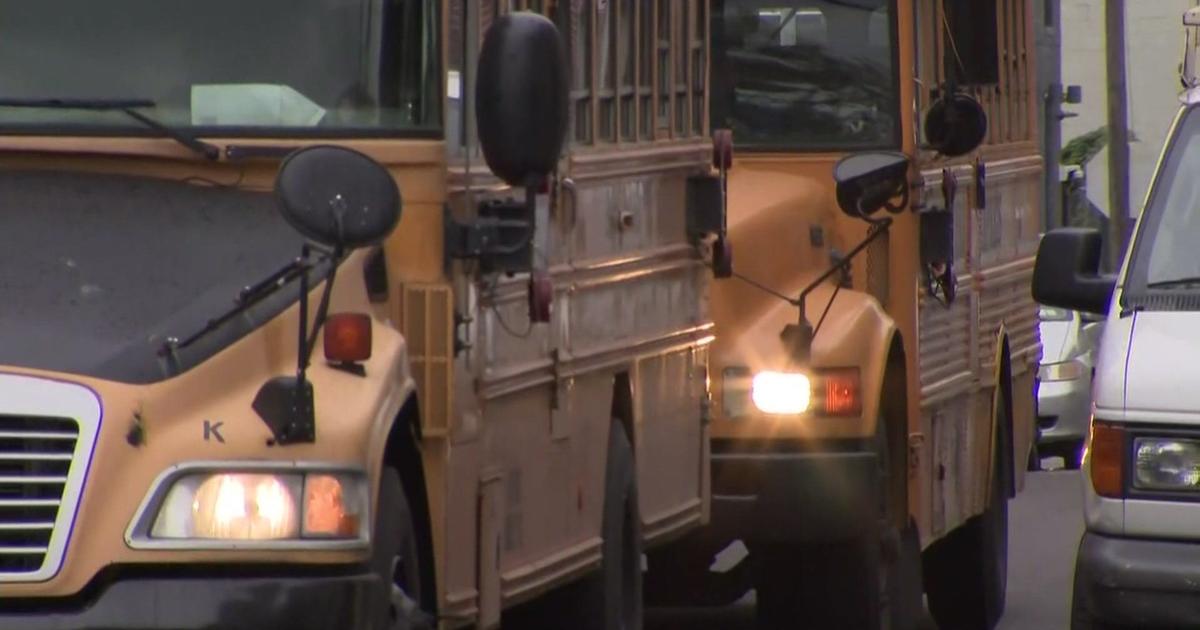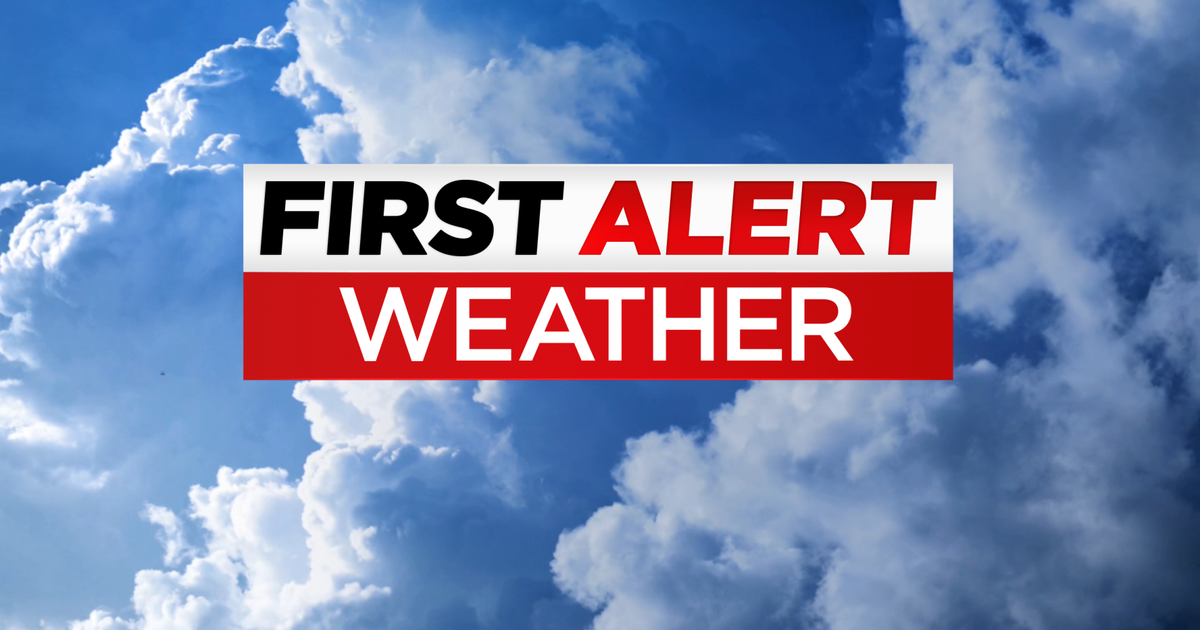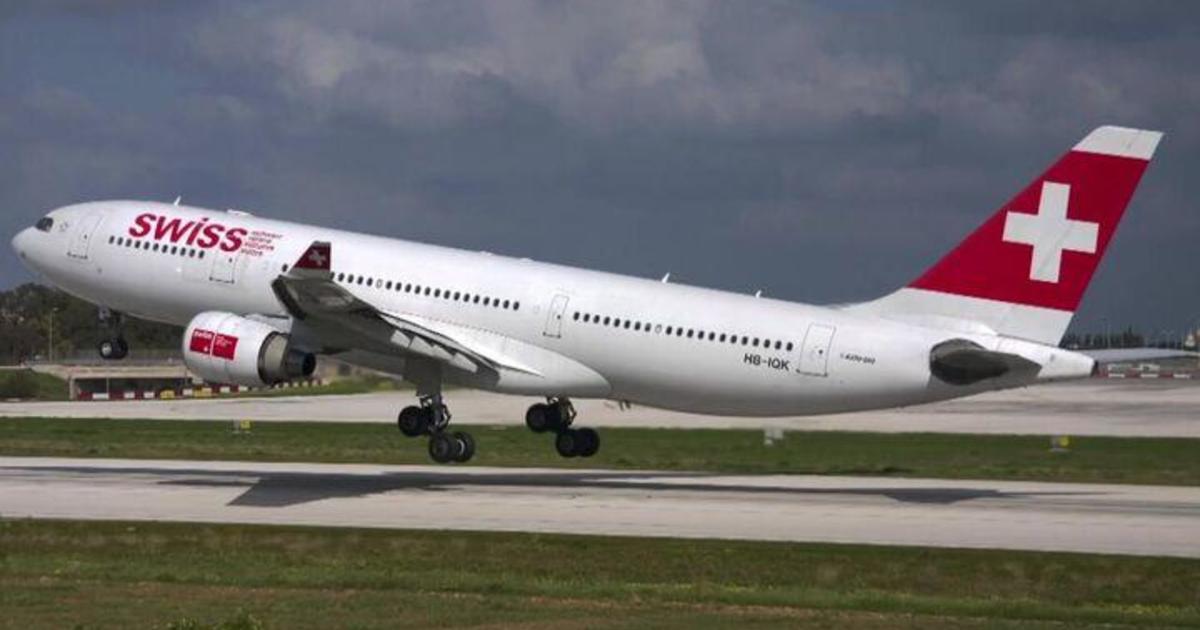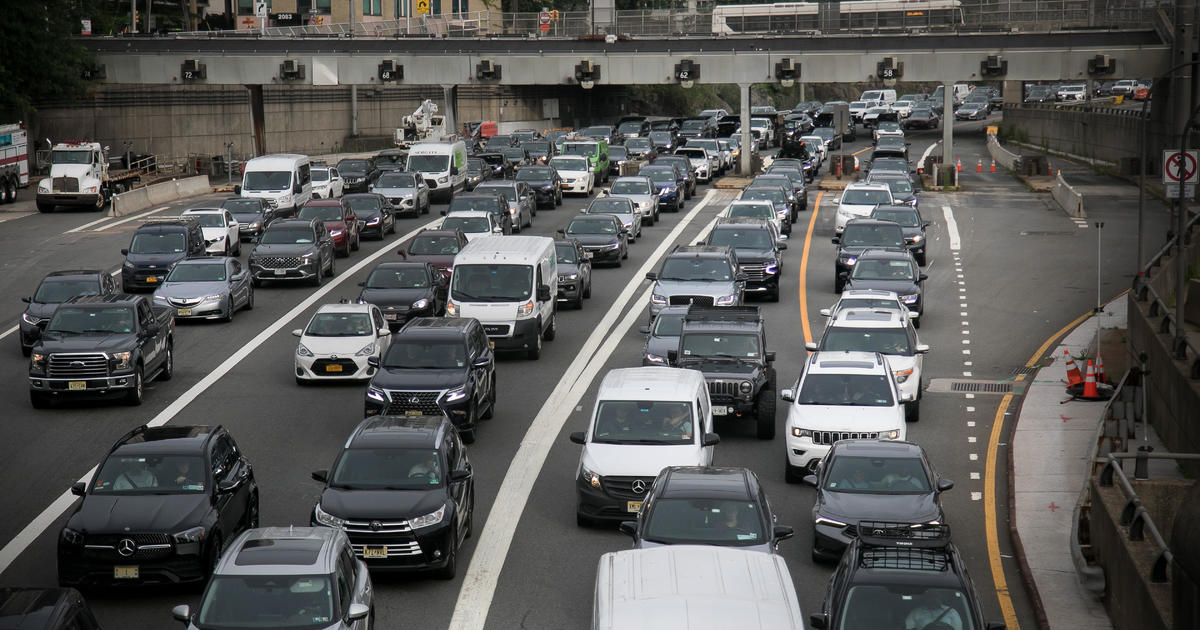Severe Storms Follow Extreme Heat For Tri-State Area
NEW YORK (CBSNewYork) -- A severe storm system brought heavy rain and dangerous lightning to the Tri-State Area late Monday, following another day of sweltering heat.
Some of the storms were blowing into the area in the late afternoon. Rain was pouring everywhere, thousands of lightning strikes were reported, and thunderclaps were echoing throughout the area.
Severe thunderstorm and flash flood watches were issued for much of the entire Tri-State Area in the afternoon and evening, and severe thunderstorm warnings were also issued at several points.
Flight delays of between 45 minutes and more than two hours were reported at John F. Kennedy International, LaGuardia, and Newark Liberty International airports when the storms were at their heights. Video posted to Twitter showed pounding rain at JFK.
Meanwhile, weather-related signal problems and a tree on the tracks in Queens delayed or shut down many Long Island Rail Road lines Wednesday evening. Penn Station had to be shut down due to overcrowding at one point, after all LIRR service to the depot had to be halted.
Flooding was seen on roads in many municipalities.
Gov. Andrew Cuomo urged New Yorkers to take precautions in the event of possible flooding, given that one to two inches of rainfall is possible through the night.
"I am urging people to use caution, especially on flooded roads this evening," Cuomo said in a news release. "Often hazards are hidden by water on roadways and it is important to remain alert. It is better to turn around then to find out too late that the power of water can sweep a vehicle off the road."
Cuomo advised that people in affected areas:
• Make sure they have enough fuel for their cars;
• Follow directed routes and avoid sightseeing;
• Monitor NOAA Weather Radio and local radio broadcasts while traveling;
• Watch for washed-out roads, earth-slides, broken water or sewer mains, loose or downed electrical wires, and falling or fallen objects.
• Watch for areas where rivers or streams may suddenly rise and flood, such as highway dips, bridges, and low areas.
• Never try to drive on a flooded road;
• Never underestimate the dangers of fast-moving water. Two feet of fast-moving water can float a car, and water moving at just 2 mph can sweep cars off a road or bridge;
• Abandon a vehicle immediately if water is rising rapidly around it.
Power outages were also reported around the area. As of 6:45 p.m., Con Edison was reporting 7,400 customers without power, with Staten Island hit the hardest. JCP&L reported more than 38,000 outages with the greatest totals on Middlesex, Hunterdon and Morris counties.
PSE&G reported more than 13,000 customers without power in New Jersey, particularly in Essex, Hudson and Somerset counties. PSEG Long Island reported more than 8,000 customers without power, with Hempstead hit hardest, 1010 WINS reported.
Earlier in Pike County, Pennsylvania, a rotating storm system prompted a tornado warning that was later allowed to expire.
The thunderstorms remained in the area well into the night.
CHECK: Forecast & Alerts | Hot Weather Safety Guide | Best Public Pools In NYC
But the storms were not bringing any relief from the extreme heat. As CBS2's Alice Gainer reported, the heat made for a miserable situation for many – including people who had to stand outside while cooking.
"I have three fans right here -- one here and one right behind," said one food cart operator. "Inside, it'110 degrees."
Many working outside were fighting to stay cool.
"It's like you're putting a sun in a heater and then putting a heat wave in the oven and taking fire and putting it all together," said Harlem resident Salim Ptah.
There were only a few people eating outside Monday afternoon. Ben Winkler of Florida said he did not want to sit inside the air conditioning.
"It's too nice a day, right?" he said.
Some residents were lining up in front of Lasker Pool in Central Park well before the locale opened, just hoping to snag a spot before it got too hot.
"The line is sometimes already to the stairs," resident Michelle Abreu said. "It gets packed."
Area hospitals are reporting spikes in heat related illness. The elderly, people with underlying health issues and small children are the most susceptible.
"Take more frequent breaks, get in the shade, get cool," said Matthew Aucutt, an emergency room physician. "When the humidity is high and the heat's high, people typically don't sweat as much as that's how you cool mainly when it's this hot."
"When we go outside we go to the sprinkler and drink lots of water and gelato and watermelon," said Karen Peterson, a mother of four.
Meanwhile, all the heat put additional demand on the New York power grid.
Gov. Andrew Cuomo on Monday directed the state Department of Public Service to take steps to lower statewide energy use. He also asked New Yorkers to conserve.
In order to do so, people were advised to:
- • Turn off the lights;
• Raise air conditioner temperatures to 78 degrees or use a fan instead;
• Close window shades;
• Power down computers, printers and other electric devices'
• Use appliances such as washing machines, dryers, dishwashers, and ovens early in morning or late at night.
And as tempting as it may be, FDNY officials are asking residents not to open fire hydrants unless they have a city-issued spray cap that limits the release of water.
Meanwhile, if your home is not air-conditioned, you are advised to spend at least two hours daily at an air-conditioned mall, library or other public place.
Remember to wear sunscreen outside along with loose-fitting, light-colored clothes that cover as much skin as possible and avoid exertion during the hottest part of the day. Also drink water regularly even if you are not thirsty.
Remember to never leave children or pets alone in the car and make sure to leave plenty of water for your pets.
For more information, click here.



